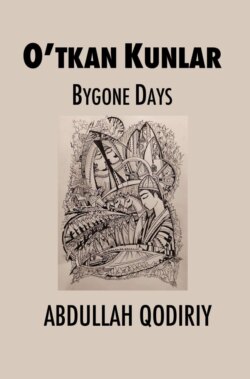Читать книгу O’TKAN KUNLAR - Абдулла Кодирий - Страница 6
На сайте Литреса книга снята с продажи.
About The Translation
ОглавлениеTranslation should be a derivative Art. Grammar and usage represent guideposts to the translator who attempts to transfer the author’s voice and cultural milieu to a reader often on the other side of the globe. No two translators will ever agree on a final rendering of a text – nor should they if the end result is to be a meaningful contribution to literature. Turkic languages present many challenges in attempting to render them into a European language. Sentences tends to run on taking a long circuitous journey to their destination, if one is even sought. Idiomatic phrases lose their depth when translated into their English equivalents. The renowned Turkish language translator Maureen Freely best describes the Turkish author Orhan Pamuk as engaging in a narrative trance through his writing. In that vein I tried to render the O’tkan Kunlar into a language that is accessible to a general readership, or someone attempting to learn English, yet give Qodiriy’s audience a sense of the unique culture that made up his world.
The text is full of old Chagatai usages that were finally erased with the development of modern Uzbek. Persian phraseology is employed by Abdullah Qodiriy as he attempts to capture what Devin DeWeese called the ‘multi-valent’ society of Turkistan before the delimitation of borders. The novel is so rich in opaque idiomatic expressions that almost no one in Uzbekistan completely agrees upon their meaning. The inherent challenges of translating Qodiriy’s prose into English is further undermined with a dearth of source material in English to aid the translator. One often has to rely upon anecdotal information as original materials are often guarded jealously by those engaged in literary production in Uzbekistan. Finally, I followed the original formatting of the novel in all its incongruities so the reader gets a sense of a writer engaged in a pioneering work.
Inevitably the translator must retell the tale in a language familiar to his or her target audience yet strike the balance of remaining true to the author’s voice. As with Freely, I agree that western readers are often coddled with clumsy attempts to bring Turkic phrases etc. into a western idiom. Those efforts often fail and reduce the original to a two- dimensional extraction. In that vein I wanted to preserve the title of the novel in its original— O’tkan Kunlar—out of respect for the sacrifices made by the author and my love of the Uzbek language. To know the name of something in its original form in my view is the greatest way to render it homage.
Also, it’s time for the world to learn some Uzbek. The same policy applies towards key terms in the novel. They are recognized from Turkey to India, and now even Whole Foods markets. Naan is naan, not bread. Naan is a product of the soul and we must know it as such. The same applies to my endnotes. They are meant for the reader, if they so choose, to learn more about the complex historical, cultural and linguistic landscape of Qodiriy’s period, as interpreted by me over a twenty-five-year period.
What I hope for most with this version of Abdullah Qodiriy’s O’tkan Kunlar is that it begins a dialog outside the normal channels available since 1991. I hope that it inspires a greater movement towards collaboration with the wonderful people of Uzbekistan. Perhaps travelers will read the book while touring the country and find greater context to what they see. If young translators in Uzbekistan are inspired to attempt their own works of creative endeavor, I will consider this all a success.
All the victories in this novel belong to the people of Uzbekistan; all the defeats are mine.
